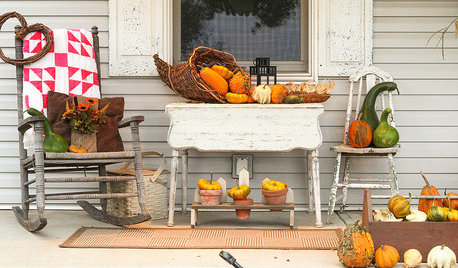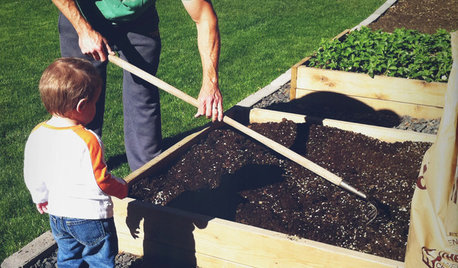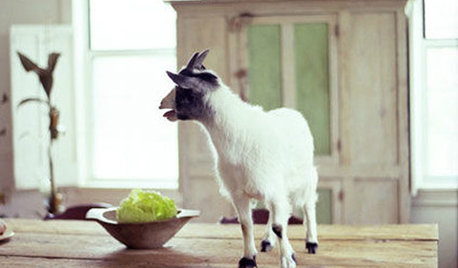Straw vs. Hay
simply_divine_joe
18 years ago
Related Stories

GREEN BUILDINGWhy You Might Want to Build a House of Straw
Straw bales are cheap, easy to find and DIY-friendly. Get the basics on building with this renewable, ecofriendly material
Full StoryGREEN BUILDING11 Reasons to Live in a House of Straw
Don’t be fooled by the old folk tale. Straw bales are a strong, functional and good-looking building material
Full Story
FURNITUREOrigins Revealed: The Orkney Chair Goes From Humble to Haute
Straw and driftwood made up the original versions, but Orkney chairs have come a long way from their modest island beginnings
Full Story
PORCHESA Peek at 2 Prettily Dressed Fall Porches
Pumpkins, fall flowers and flea market finds help two Ohio porches get into the seasonal spirit
Full Story
GARDENING AND LANDSCAPINGBuild a Raised Bed to Elevate Your Garden
A bounty of homegrown vegetables is easier than you think with a DIY raised garden bed to house just the right mix of soils
Full Story
GARDENING GUIDESGardening Solutions for Heavy Clay Soils
What’s a gardener to do with soil that’s easily compacted and has poor drainage? Find out here
Full Story
EDIBLE GARDENSSummer Crops: How to Grow Tomatoes
Plant tomato seedlings in spring for one of the best tastes of summer, fresh from your backyard
Full Story
MEDITERRANEAN STYLEHouzz Tour: A Modern Take on Southwest Style
A designer updates a classic adobe home with lighter furnishings, fresh finishes and complementary ethnic motifs
Full Story
GARDENING GUIDESGet on a Composting Kick (Hello, Free Fertilizer!)
Quit shelling out for pricey substitutes that aren’t even as good. Here’s how to give your soil the best while lightening your trash load
Full Story
LIFEEasy Green: Modern Homesteaders Stake a Claim
With more options for raising chickens, growing edibles and keeping bees than ever, suburban and city folk are rediscovering a lost art
Full Story





MLcom
PNWet
Related Professionals
White Oak Landscape Architects & Landscape Designers · Chattanooga Landscape Contractors · Huntington Landscape Contractors · Lake Saint Louis Landscape Contractors · Lewisville Landscape Contractors · Palos Hills Landscape Contractors · New Orleans Roofing & Gutters · Renton Roofing & Gutters · Toledo Roofing & Gutters · Seguin Roofing & Gutters · Norwood Roofing & Gutters · Vista Park Roofing & Gutters · Black Forest Roofing & Gutters · League City Swimming Pool Builders · San Dimas Swimming Pool Buildersopqdan
PNWet
ceresone
Belgianpup
mulchwoman
mikta
opqdan
Belgianpup
Roberta_z5
Wayne_Georgia
ceresone
huisjen
barrie2m_(6a, central PA)
jolj
ga_karen
Diannadesigns gardens
Poacherjoe
jamesporter
plsanders1_juno_com
lavender_lass
catherine_nm
ga_karen
oliveoyl3
Ginny McLean_Petite_Garden